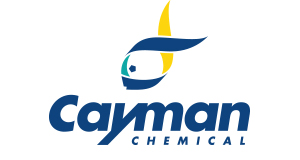Soluble CD40 Ligand (human, recombinant; Fc-tagged)
Soluble CD40 Ligand (human, recombinant; Fc-tagged)
Artikelnummer
CAY32046-500
Verpackungseinheit
500 µg
Hersteller
Cayman Chemical
Verfügbarkeit:
wird geladen...
Preis wird geladen...
Shelf life (days): 365.0
Formulation: Lyophilized from sterile PBS, pH 7.4
Uniprot ID: P29965
Purity: ≥90% estimated by SDS-PAGE
Formula Weight: 0.0
Notes: CD40 ligand (CD40L) is a type II transmembrane protein and member of the TNF superfamily encoded by CD40LG in humans.{57013} It is expressed primarily by activated T cells, as well as activated B cells and platelets and, under inflammatory conditions, can be induced in natural killer (NK) cells, mast cells, basophils, and monocytes. CD40L trimerizes to engage its receptor, CD40, on various cells, including B cells, dendritic cells, monocytes, platelets, macrophages, endothelial cells, and myoblasts, to induce cell type-specific signaling and activities. Soluble CD40L (sCD40L) is produced by proteolytic cleavage of CD40L at the cell surface and is found in the circulation.{57014,57017} sCD40L retains its ability to trimerize and bind to CD40, indicating CD40L can act as a cytokine.{57014} Exogenous administration of sCD40L increases blood brain barrier (BBB) permeability and increases disease severity in a mouse model of experimental autoimmune encephalomyelitis (EAE).{57015} sCD40L enhances collagen-induced aggregation of isolated human platelets and exacerbates thrombus formation in wild-type, but not CD40-/-, mice.{57016} Serum levels of sCD40L are positively correlated with the albumin quotient, a marker of BBB breakdown, in patients with multiple sclerosis.{57015} Cayman’s Soluble CD40 Ligand (human, recombinant; Fc-tagged) protein can be used for ELISA. This protein is a disulfide-linked homodimer. The reduced monomer, comprised of CD40L (amino acids 113-261) fused to human IgG1 Fc at its N-terminus, consists of 386 amino acids and has a calculated molecular weight of 42.8 kDa.
Formulation: Lyophilized from sterile PBS, pH 7.4
Uniprot ID: P29965
Purity: ≥90% estimated by SDS-PAGE
Formula Weight: 0.0
Notes: CD40 ligand (CD40L) is a type II transmembrane protein and member of the TNF superfamily encoded by CD40LG in humans.{57013} It is expressed primarily by activated T cells, as well as activated B cells and platelets and, under inflammatory conditions, can be induced in natural killer (NK) cells, mast cells, basophils, and monocytes. CD40L trimerizes to engage its receptor, CD40, on various cells, including B cells, dendritic cells, monocytes, platelets, macrophages, endothelial cells, and myoblasts, to induce cell type-specific signaling and activities. Soluble CD40L (sCD40L) is produced by proteolytic cleavage of CD40L at the cell surface and is found in the circulation.{57014,57017} sCD40L retains its ability to trimerize and bind to CD40, indicating CD40L can act as a cytokine.{57014} Exogenous administration of sCD40L increases blood brain barrier (BBB) permeability and increases disease severity in a mouse model of experimental autoimmune encephalomyelitis (EAE).{57015} sCD40L enhances collagen-induced aggregation of isolated human platelets and exacerbates thrombus formation in wild-type, but not CD40-/-, mice.{57016} Serum levels of sCD40L are positively correlated with the albumin quotient, a marker of BBB breakdown, in patients with multiple sclerosis.{57015} Cayman’s Soluble CD40 Ligand (human, recombinant; Fc-tagged) protein can be used for ELISA. This protein is a disulfide-linked homodimer. The reduced monomer, comprised of CD40L (amino acids 113-261) fused to human IgG1 Fc at its N-terminus, consists of 386 amino acids and has a calculated molecular weight of 42.8 kDa.

 English
English










